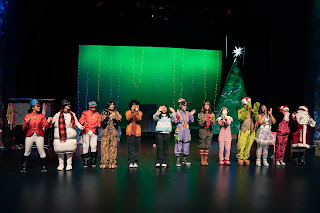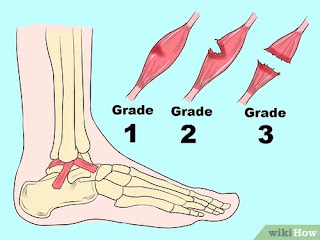 |
| MJ: The Musical |
I must start by saying I do not like jukebox musicals very much. I have many reasons why I don't like them, but mainly because they seem to be created with little originality, following a simple, uncomplicated, and very predictable structure and storyline. You may disagree with me but that conversation is for another time.
Because of my dislike with jukebox musicals, I was not expecting MJ: The Musical at the Orpheum Theatre in San Francisco, to be much of a show. It is a jukebox musical after all, and my experiences with such shows have been disappointing. The same can be said about musicals based on films, which is a topic I will address in a different blog entry.
And so, I arrived to the show with conflicting feelings. I didn't expect much of this jukebox musical but deep down I wanted the show to be good because Michael Jackson became my favorite music artist after he came out with "Off the Wall," the only music album by Michael that has been inducted in the Grammy Hall of Fame. And while I don't wear Michael Jackson T-shirts or the white glove, or anything remotely related to Michael Jackson, like many audience members did when I attended the show, I do consider myself a fan. He is the King of Pop after all.
 |
| The Orpheum Theater, SF CA |
I first have to say how much I enjoyed the beginning of the show, which was "a rehearsal," where a band and dancers were warming up while waiting for Michael to arrive. And when he arrived, he only had a couple of words to say and off they all went into rehearsing a musical number. And from that moment on, I was hooked. And while I knew a lot about Michael's life, musical challenges, and career obstacles and tribulations, it was how the musical was structured and how the plot was set that made this jukebox musical very different from the others I have watched. All thanks to playwright extraordinaire, Lynn Nottage. Yes, there was a plot element that aided in transporting us to Michael's past as a child and slowly moving forward to "the present." But again, its very tight structure and its smart sequence of events within the show made MJ: The Musical a delight and entertaining theatre piece.
One of the many reasons I don't really like jukebox musicals is because, since the majority of songs in such musicals are well-known pop songs or well-known songs by the artists the musical is about, most of the time audience members start to whistle, holler, clap, and/or cheer when they hear their favorite song. At times, audience members get up from their seats and start to dance and even worse, sing, as if they were at a concert. This type of behavior, whether justified or not, is one of the many reasons I dislike jukebox musicals. So throughout the show, while enjoying MJ: The Musical, I was always nervous that some fan would start "joining the fun." And there were a couple of times when that almost happened, but the way the show is written and the way the songs are arranged for the musical, made it difficult for unwanted audience participation to occur. In fact, there was a moment when people started clapping to the beat with a certain song (I think it was Man in the Mirror.) But a few seconds after that, the audience had to stopped because the music rhythms changed and the vocals were done not just by "Michael Jackson" but also by other characters on stage. When that happened, I smiled and I think I even uttered (very softly) the word "yes" in a moment of triumph.
 |
| The merch was selling out! The stage was awesome! |
Besides having a very good structure and plot, the acting, the choreography (by Christopher Wheeldon), and the dancing in this musical were amazing. There were times when I thought I was watching a traditional musical with traditional musical numbers with a twist. So as a jukebox musical, the show is so different and so unexpected that it surprises you. At least, it surprised me.
The show is also very artistic. Even though we are following Michael's life as an artist while putting together his "Dangerous Tour," the show gives the audience the opportunity to understand where Michael's dancing inspiration came from. The transition from the opening number in act two into "Smooth Criminal" becomes a dance history lesson, a homage to great American dancers, such as Fred Astaire, Bob Fosse, and The Nicholas Brothers, artists who made an appearance in the musical, and artists who influenced Michael Jackson's moves, such as the pelvis thrust and the infamous moonwalk. And believe me, the transition from one number to the next is as smooth as the title of the song itself.
The choreography is top notch; the musical arrangements are unexpected, the dancing is superb, the acting and "off the wall,” and the singing, oh, the singing is just glorious. Everyone in the cast has its moment to shine and everyone in the cast who ended up playing more than one character is magnificent. But of course, the show would be nothing if there wasn't an actor who could embodied Michael Jackson's body and spirit, and the night I went, actor Roman Banks was that vessel, the conduct for Michael Jackson's spirit. Mr. Banks walked, spoke, sang, and dance like the late "King of Pop," making this musical a delight to watch.
At the end, because of the great writing by Ms. Nottage, because of the great Michael embodiment by Mr. Banks, because of the unique choreography by Mr. Wheeldon, and because of the great artistry by the ensemble and the technical team, MJ: The Musical was an unexpected jukebox musical I enjoyable and turned my night at the theatre, truly enjoyable.


.jpg)


































